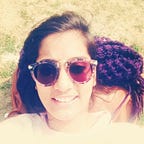Ancestral Diet: Just Another Food Fad?
I recently read Michael Pollan’s book ‘In Defense Of Food- An Eater’s Manifesto’. Not only was this book really fun to read, but it also allowed me to question so many of the diet-related things they have fed us.
Trying to summarize his book would mean trying to simplify all the incredible material Michael has sourced as a journalist and activist and with the added difficulty of making it enjoyable and intriguing. A storyteller as brilliant as Michael makes me believe in the power of words.
He could convert me into a vegan if he really wanted. I would recommend you read this book if you find the time and if you're too overwhelmed by the good and the bad of food, or at least how it’s shown in advertising. (I shudder when I think of that time the market was trying to sell low-fat yogurt as the new thing or when margarine was pushed as a healthy alternative in time).
But I digress. Let's begin this discussion about the ancestral diet by formally introducing you to it. Do you want the long story or the short one? Let's say we’re at a cafe and the barista greets you and says hello. My name is _____. What follows has to be brief because you just want a latte and don’t need to know about the discount they offer on Christmas. So let's get to it.
‘Hi, I’m Ancestral diet. I’m what your elders ate,to meet their survival and nutritional needs.’
Person X: “Oh wow I’m intrigued. So what do you mean by what my elders ate? I will not go foraging for my meal in the middle of the city. Do you see any jungles around where I could hunt for my dinner? Why should I trust you? My dietician told me to go on a ketogenic diet and I’ve already lost 10 pounds.”
Right, I think you understand where I’m coming from when I say that people are so overwhelmed by the information that we are constantly being fed. Literally and figuratively.
We can view ancestral diets as a food philosophy, but it is trendy to talk about your food choices. The more complicated it sounds, the better. Here, that is a big problem. Ancestral diet is pretty self-explanatory, and it's so simple that no one even wants to talk about it. Ancestral diet tells you to not eat processed food or heavily packaged things. In the simplest sense, it says to eat as fresh as you can.
There are two parts to it. One is the simplicity of the food, that less processed food is better. The other is the geographical location we consume some of these foods in.
Eating quinoa in India would be fine, I suppose, but wouldn’t it be smarter to eat millets that grow so easily in our part of the world? There are a million options. Another brilliant book called The Blue Zones Solution goes into this aspect.
The longest-living centenarians and what made them and what worked for them were intriguing. It fascinates me by how much our ancestors were in touch with their bodies and their health. Yes, they died of communicable diseases or by eating poisonous food by mistake, but they didn't die of overconsumption of the food they themselves made. We’re in the middle of a pandemic and if this isn't the right time to look at our food choices, when is it going to be important enough?
